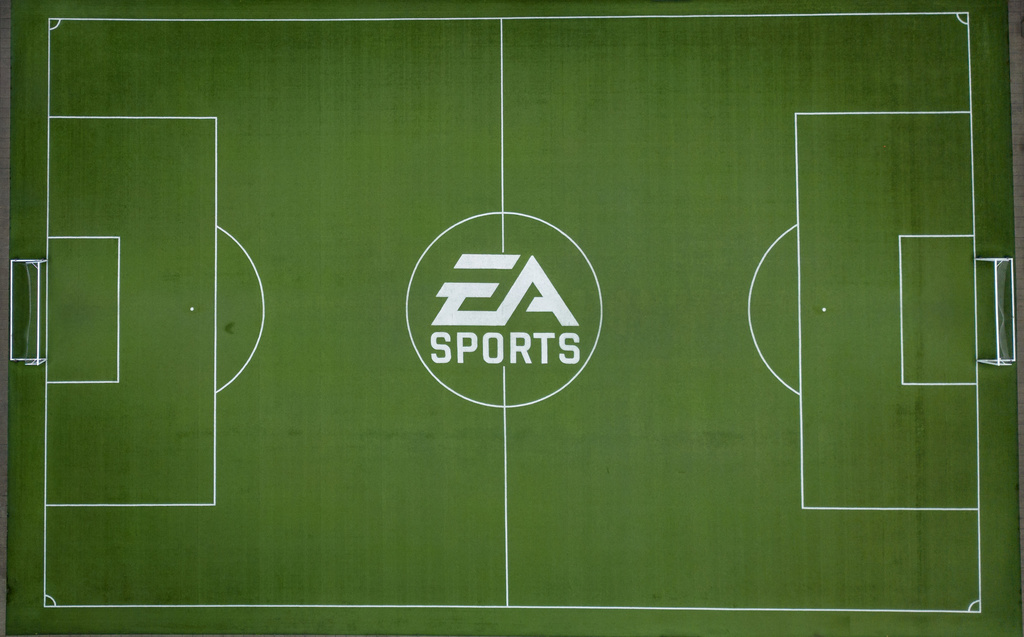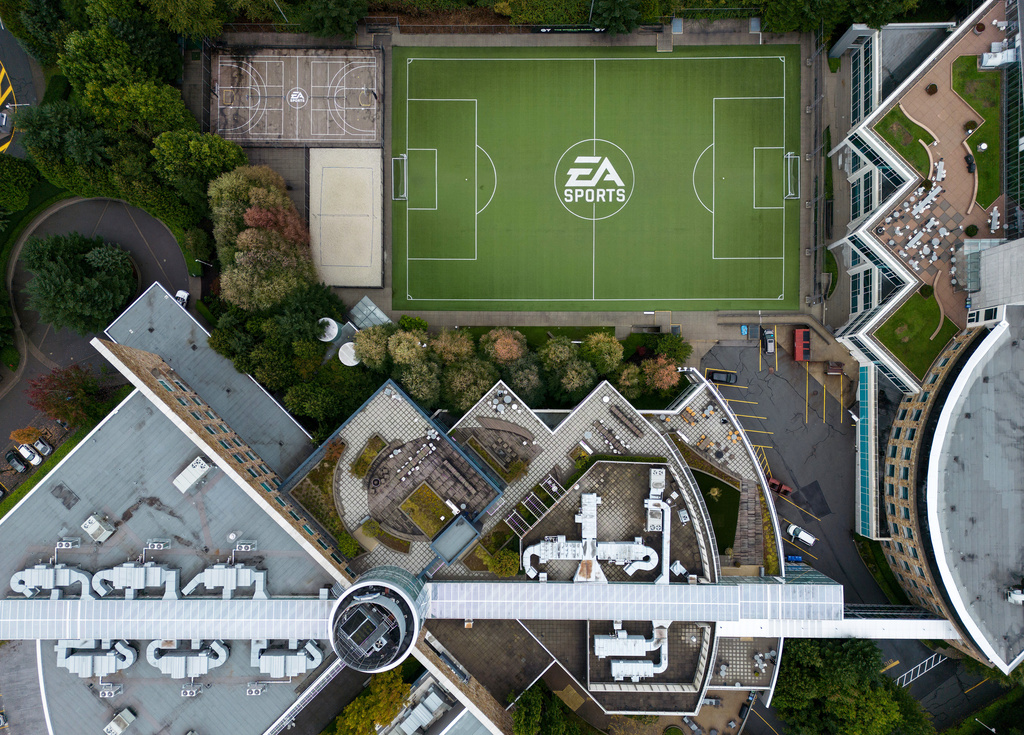 A potential landmark deal is in the works that could reshape the video game landscape. Electronic Arts (EA), the powerhouse behind franchises like Madden NFL, Battlefield, and The Sims, is considering a buyout valued at a staggering $55 billion. This acquisition, poised to be the largest-ever private equity-funded buyout, could grant EA increased autonomy in its game development and distribution strategies. However, the precise implications of this new ownership remain uncertain.
A potential landmark deal is in the works that could reshape the video game landscape. Electronic Arts (EA), the powerhouse behind franchises like Madden NFL, Battlefield, and The Sims, is considering a buyout valued at a staggering $55 billion. This acquisition, poised to be the largest-ever private equity-funded buyout, could grant EA increased autonomy in its game development and distribution strategies. However, the precise implications of this new ownership remain uncertain.
 This proposed buyout also highlights the increasing interest of Saudi Arabia's Public Investment Fund (PIF) in the gaming sector. Should the deal proceed, PIF would join Silver Lake Partners and Affinity Partners, led by Jared Kushner, as the new owners of EA. The involved parties aim to finalize the all-cash transaction by the first quarter of 2027.
This proposed buyout also highlights the increasing interest of Saudi Arabia's Public Investment Fund (PIF) in the gaming sector. Should the deal proceed, PIF would join Silver Lake Partners and Affinity Partners, led by Jared Kushner, as the new owners of EA. The involved parties aim to finalize the all-cash transaction by the first quarter of 2027.
What makes EA such an appealing target for acquisition? The video game market's substantial growth has attracted significant investment from major players in recent years. EA's established brand and diverse portfolio of popular titles make it a particularly attractive acquisition target.
The timing of this proposed acquisition coincides with intensifying competition within the gaming industry. Microsoft's acquisition of Activision Blizzard for nearly $69 billion in 2023 underscores this trend. Furthermore, the rise of mobile gaming giants like Epic Games has heightened the competitive pressure on traditional video game companies.
The combined offer from PIF, Silver Lake, and Affinity to acquire EA significantly surpasses the previous record for leveraged buyouts, which was the $32 billion acquisition of Texas utility TXU in 2007. A leveraged buyout involves purchasing a company primarily with borrowed funds, requiring the acquired company to repay the debt incurred to finance the deal.
Could privatization offer EA a competitive edge? It's plausible that this deal could provide EA with greater flexibility in its future game development and distribution endeavors.
By transitioning to private ownership, EA could potentially restructure its operations without the constraints of shareholder pressures or intense market scrutiny. This could afford EA more room to maneuver and innovate, according to Joost van Dreunen, a seasoned games industry researcher and adjunct assistant professor at New York University's Stern School of Business.
In theory, this could translate to "more or better games," suggests Ben Schneider, a professor of practice in the Interactive Media and Game Development program at Worcester Polytechnic Institute. However, he cautions that "gamers are generally not enthralled with corporate owners influencing how game makers make their games, to say the least."
EA has recently faced criticism regarding its emphasis on live-service gaming, which involves a continuous stream of new content designed to retain players online for extended periods, as well as other monetization strategies perceived as aggressive by some gamers.
Experts like van Dreunen, who also serves as CEO of market research firm Aldora, express hope that the additional capital resulting from privatization might allow EA "to take this foot off the gas from aggressive microtransaction strategies."
Nevertheless, only time will tell. EA's prospective buyers have not indicated any intention to deviate from these models. In the official announcement, company executives simply alluded to future growth.
"Looking ahead, we will continue to push the boundaries of entertainment, sports, and technology, unlocking new opportunities," stated Andrew Wilson, CEO of EA, who is expected to remain in his position if the privatization deal is finalized.
Some analysts remain skeptical about the potential benefits of a buyout for EA, particularly with the upcoming launch of "Battlefield 6."
"It is still unclear to us why EA would agree to be acquired right before a very promising BF6 launch," wrote TD Cowen analysts Doug Creutz and Mei Lun Quach in a note. The analysts had previously highlighted the positive feedback received by "Battlefield 6" during its testing phase, suggesting that anticipated revenue could further increase EA's share price.
Others have similarly argued that the proposed acquisition price, which amounts to $210 per share, undervalues EA's potential. However, Nick McKay of Freedom Capital Markets believes that a significant increase in share price is unlikely, given that the success of EA's sports offerings is already factored into the price, and that the current pricing is reasonable.
Is it anticipated that a takeover would lead to the closure of more game studios and result in layoffs?
Following privatization, formerly public companies often implement extensive cost-cutting measures.
EA has not indicated any anticipated cuts related to the proposed buyout at this time, although the company has recently undergone several rounds of layoffs. After reducing its workforce by approximately 5% in 2024, EA ended March with 14,500 employees and subsequently laid off several hundred more in May.
Experts like Schneider also emphasize the substantial debt financing involved in the deal, amounting to approximately $20 billion. He notes that this is concerning news for video game developers, as it could lead to further cuts.
"These changes in ownership are a very far distance from the people and studios who actually make games," Schneider said. "Any direct impact will come in the form of what budgets are given to those studios and, downstream, which projects get cancelled or greenlit."
EA has a history of closing down game studios. Most recently, the company reportedly canceled the development of a video game based on Marvel's "Black Panther" as part of the closure of Cliffhanger Games.
Why is Saudi Arabia's PIF fund so heavily invested in the video game industry?
Among EA's potential buyers is Saudi Arabia's sovereign wealth fund, PIF, which has been steadily increasing its investments in gaming. It already holds a 9.9% stake in EA and is also a minority investor in Nintendo.
Van Dreunen explains that gaming is popular among younger audiences, and the majority of Saudi Arabia's population is under 30 years old. This demographic trend fuels demand in a tech-forward industry that can be "easily transported into a new location."
Amanda Cote, an associate professor and director of the serious games certificate at Michigan State University, notes that the attempted acquisition of EA aligns with PIF's recent moves in esports, with competitive gaming platforms like ESL FACEIT also included in its portfolio.
"EA's game portfolio simultaneously aligns with Saudi Arabia's expansions into sports, gaming, and esports," Cote said, referring to EA's esports and sports properties like Madden Football and EA Sports FC (formerly FIFA).
However, she also pointed out that human rights organizations, such as Amnesty International, have been highly critical of Saudi Arabia's overall investments in sports and esports, accusing the nation of "sportswashing" to divert international attention. "This proposed deal is likely to face similar criticism," Cote added.
 Jared Kushner is among the other prominent figures involved in the proposed buyout.
Jared Kushner is among the other prominent figures involved in the proposed buyout.
The deal is still subject to shareholder and regulatory approval. Experts like van Dreunen anticipate potential regulatory challenges, possibly not in the U.S., but from consumer watchdogs in other countries.
Baird Equity Research analysts noted that the "connections to both the Saudi government and the Trump administration" may be "a strategic asset for EA in navigating any regulatory speed-bumps."


No comments:
Post a Comment